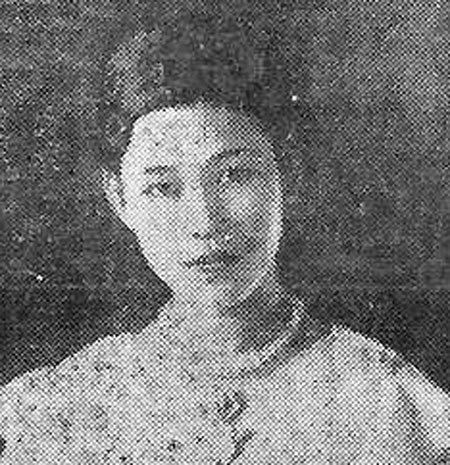Depressing lyrics during the Japanese colonial era
Depressing lyrics during the Japanese colonial era
Posted February. 09, 2018 08:05,
Updated February. 09, 2018 08:05

The Korean society fell into turmoil as a famous singer committed suicide at the end of last year. The song lyrics, which seemed to be foreshadowing his death, were quite shocking. Deaths of celebrities were subjects of interest for the public in Korea even during the Japanese colonial era. The deaths of Choi Hyang-hwa, a 19-year-old singer and dancer who was in Joseon Entertainers’ Society, and famous entertainer Kang Myeong-hwa, whose story was written into the song “The Song of Kang Myeong-hwa,” were the deaths that stirred up the most issues.
The “Suicide of Lovers” incident, in which Yoon Shim-deok and Kim Woo-jin jumped into the Korea Straits in 1926, was the very first case. Nito Record Company released “Praise for Death” two weeks after Yoon Shim-deok died, and advertised her as “Joseon’s only soprano singer who sang ‘Praise for Death’ as her last song and threw herself into the big blue sea.” Nito’s “marketing with the deceased” was a great success.
But the gloomy sentiment and depressing lyrics of “Praise for Death” stimulated the nihilism of the young people, which was everywhere in Korea after the 3.1 Movement failed. “Praise for Death” was a big hit, but the Japanese empire must have been rather afraid. If such sentiment can turn into resentment and turn its directions toward anger on the Japanese empire, it could have become an unstoppable wave of anger.
The pessimistic sentiment derived from “Praise for Death” reached its peak with the masterpiece song “The Song of Wandering” in 1931. The intellectuals harshly criticized through the press and media that popular songs encouraged decadence. They scolded the young people who were drawn into nihilism. The song that was created in this sentiment was “Addition of Sorrow and Scar” by Nito in 1934. The singer who sung this song was Park Gyeong-hee, a soprano singer who majored in vocal music in Tokyo Music School in Japan. She was born in Pyongyang, just like Yoon Shim-deok, and she attracted everyone’s attention as the only Korean who won a prize in Japan New Artists’ Music Concours. Nito kept its eyes on her and scouted her. But the result was an epic failure.
There is an extreme contrast between the sentiments of “Praise for Death” and “Addition of Sorrow and Scar.”
“Praise for Death” embraced and comforted the sorrow of young people of Joseon, who were lost and discouraged, with its lyric saying “In this world of tears, will my death end it? All of you looking for happiness, finding you is a sad thing.” But “Addition of Sorrow and Scar” scolded the young people with its lyric saying “In this world of tears, will my death end it? All of you looking for happiness, stop worrying about unnecessary things.” This is the critical reason why “Addition of Sorrow and Scar” failed.
The record company wanted to make profits by adding some Yoon Shim-deok in a crafty way and the Japanese Empire, which disliked the sentiment of young Joseon people, wanted to scold them. These two were combined and created “Addition of Sorrow and Scar.” But everyone saw nothing but a déjà vu of Yoon Shim-deok, and not many people remember “Addition of Sorrow and Scar” or “Park Gyeong-hee.”
Seung-Hoon Cheon raphy@donga.com







